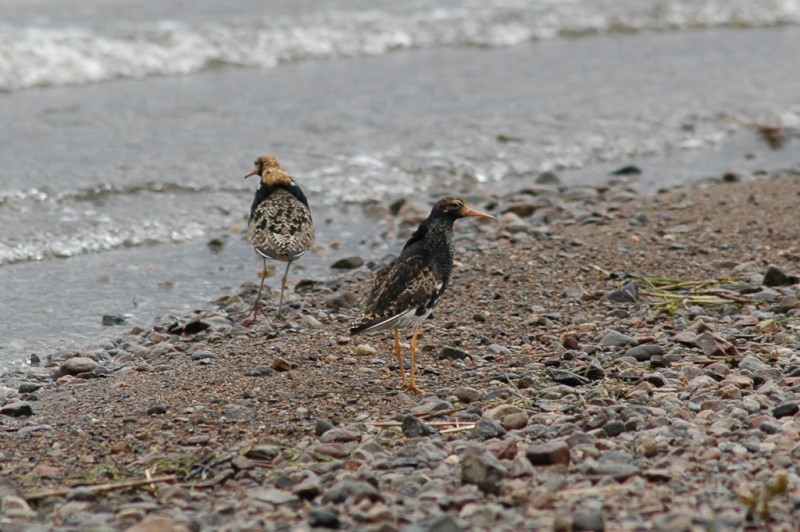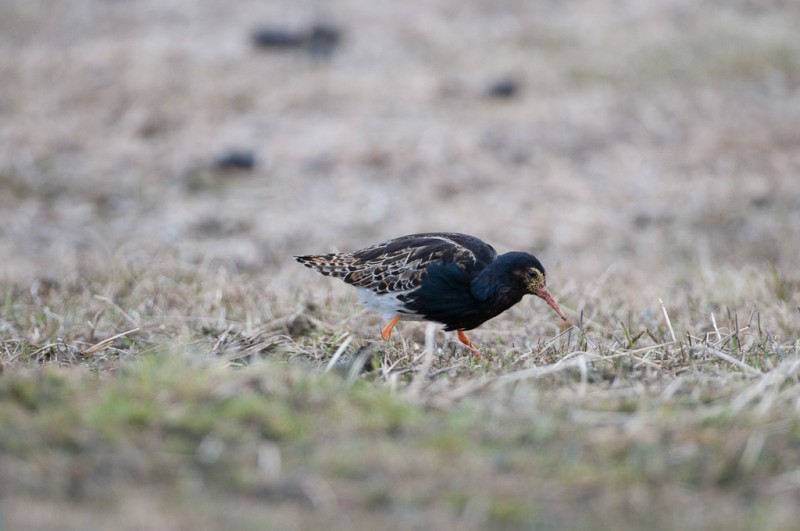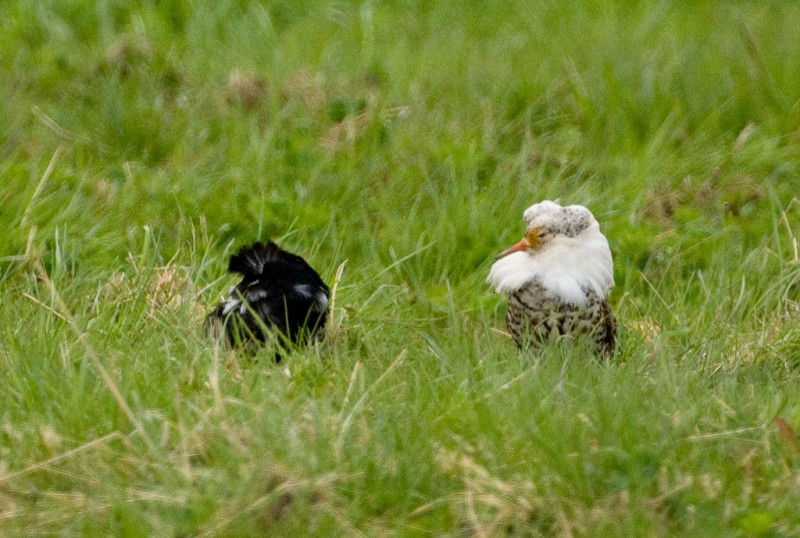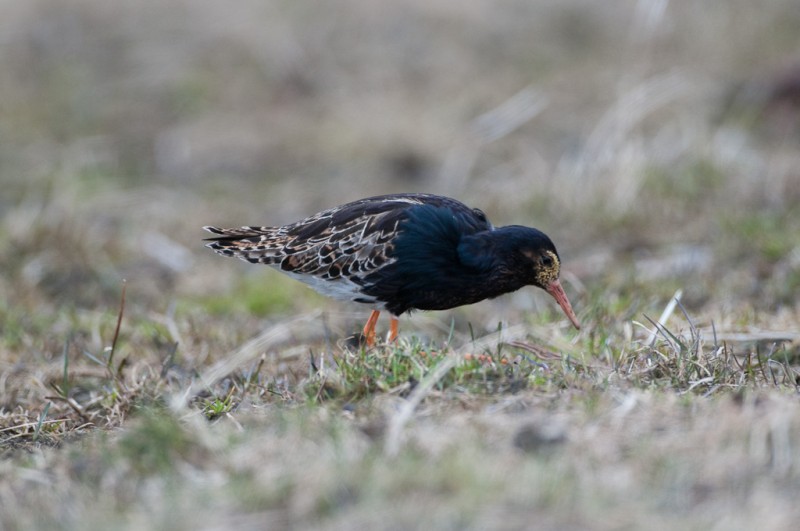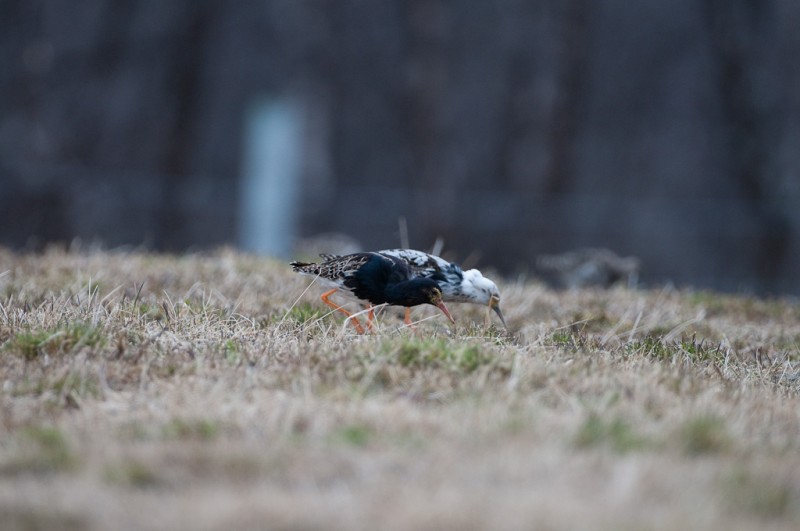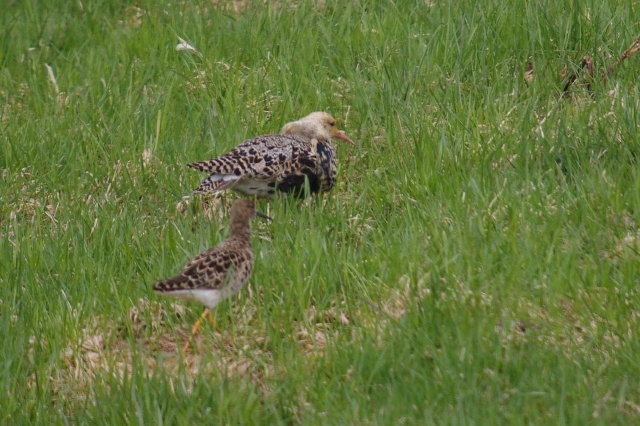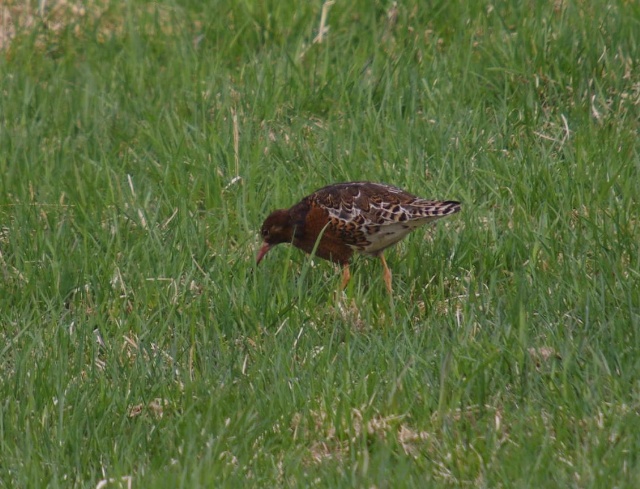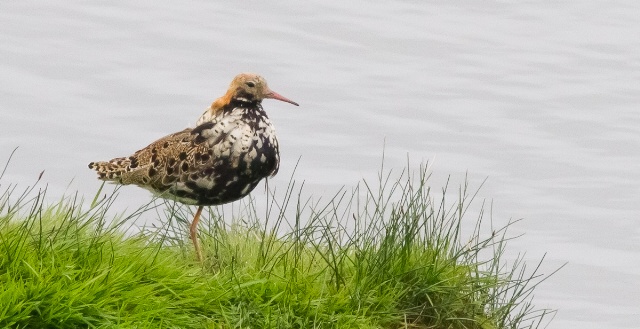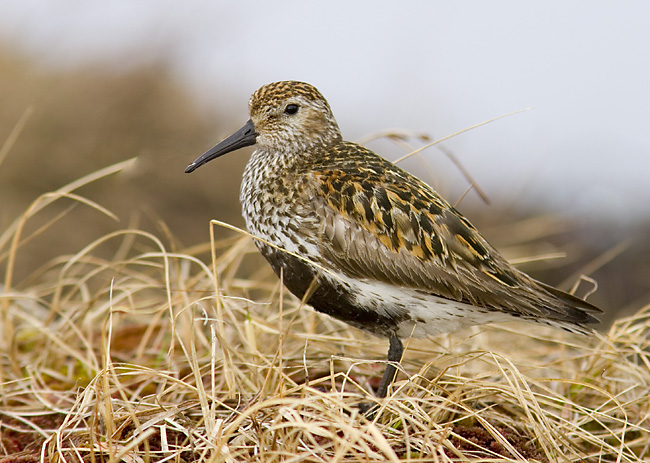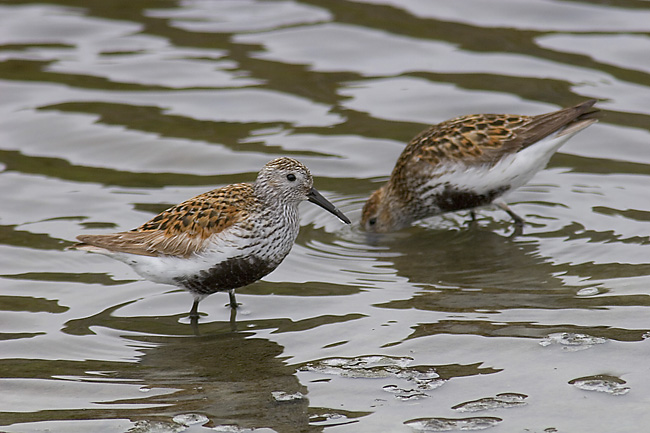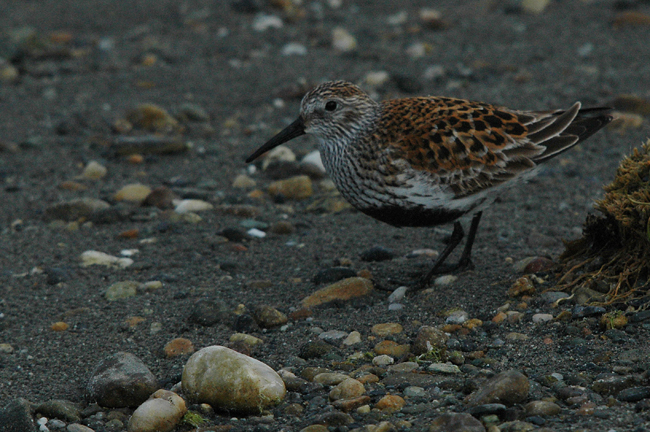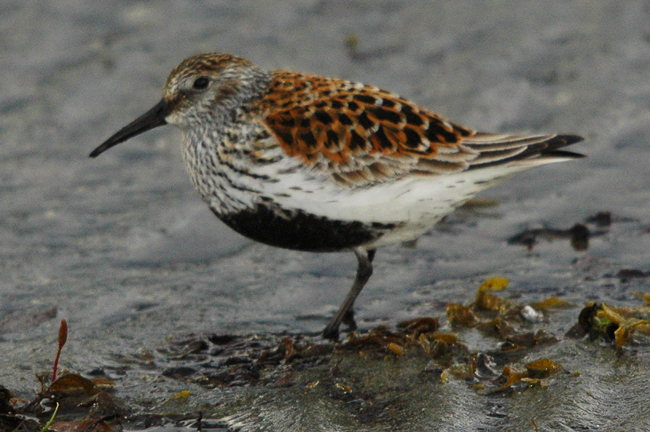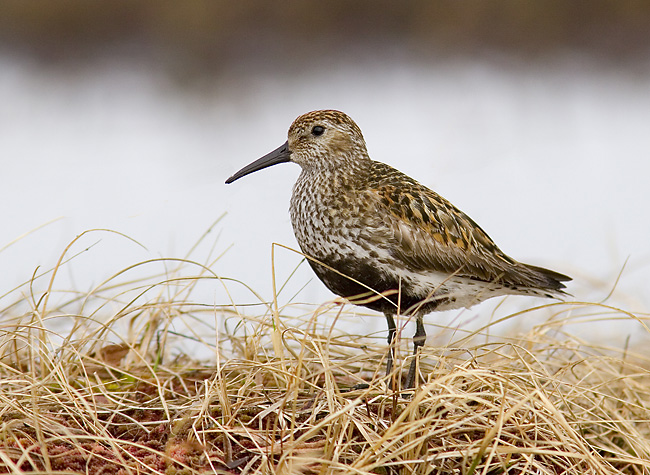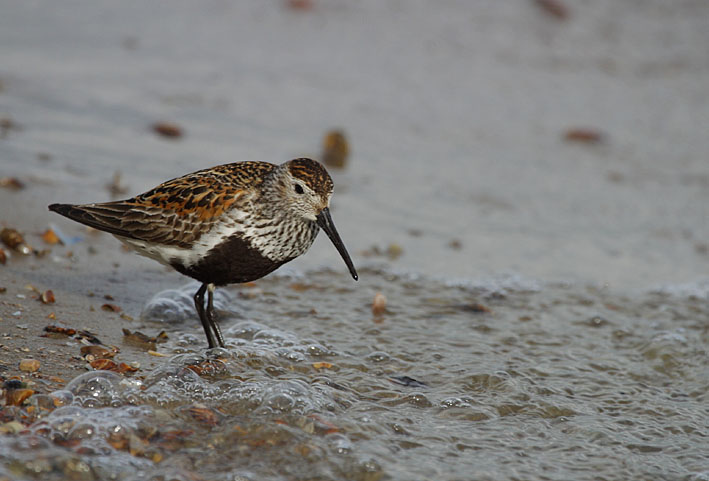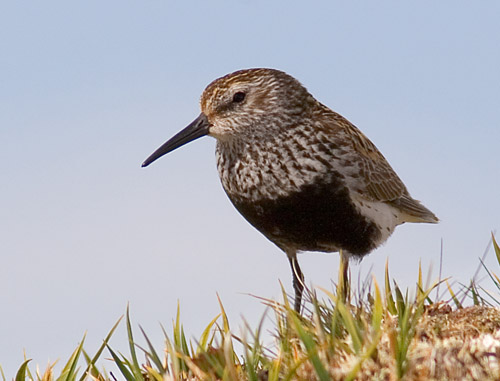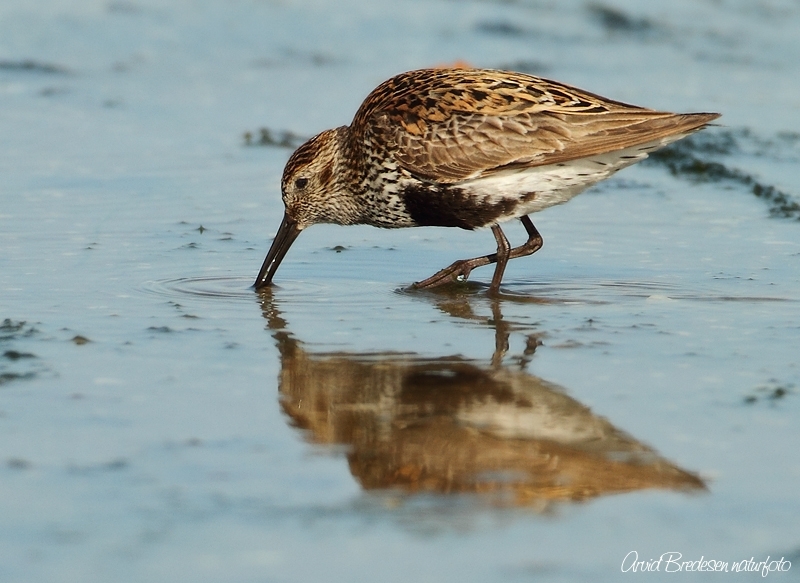Ruff (Calidris pugnax)
Dunlin (Calidris alpina)
Relatively large wader with long orange or greenish (juveniles) legs. Scaly back and medium long, slightly curved and heavy bill. Male in breeding plumage unmistakable with ruff in various colours and patterns. Characteristic upright posture and body shape with long neck, small head and humped back. Conspicuous white oval patches at upper base of tail. Notable difference in size between sexes (male largest). Often seen feeding in meadows and fields when away from breeding ground.
Sound:Generally silent. Short, muted, nasal, mono or disyllabic grunts sometimes heard.
Social sound:
Distribution:
Wikipedia: map (se also Xeno-canto below)
Ecology:Birdlife ecology
Links:
Observation.org Latest observations
Image search Flickr NB! May give other species
CCCC-photo:A.J. Haverkamp, Licence,Link,
Sounds:Recorded by Jarek Matusiak,http://www.xeno-canto.org ,CC license
Only small wader in the region with a dark or spotted belly. Most common small wader in area, and an important reference species when identifying congeners. Bill quite long with slightly curved tip. Legs dark. Summer plumage with unmistakable large black patch on belly, and variable warm, rufous brown back. Juveniles and moulting adults usually shows at least some diagnostic dark spots on belly in contrast to white flanks. White V-shaped markings on back, but not as striking as in juvenile Little Stint. Only adults in winter plumage shows completely white underparts (and uniformly grey back).
Sound:Contact call a diagnostic, very nasal "trrreeet" . Given throughout the year and in many situations, including when being flushed. Song: A drawn out, nasal "tweeet", and ringing variations on the contact call in decrescendo. Low chattering heard from feeding birds.
Song:
Distribution:
Wikipedia: map (se also Xeno-canto below)
Ecology:Birdlife ecology
Links:
Observation.org Latest observations
Image search Flickr NB! May give other species
CC
 English
English Albanian
Albanian
 Armenian
Armenian
 Bulgarian
Bulgarian
 Catalan
Catalan
 Croatian
Croatian
 Czech
Czech
 Danish
Danish
 Dutch
Dutch
 Finnish
Finnish
 French
French
 Georgian
Georgian
 German
German
 Greek
Greek
 Hungarian
Hungarian
 Italian
Italian
 Latvian
Latvian
 Lithuanian
Lithuanian
 Macedonian
Macedonian
 Norwegian
Norwegian
 Polish
Polish
 Portuguese
Portuguese
 Romanian
Romanian
 Russian
Russian
 Sami : Lule sami
Sami : Lule sami
 Sami : North sami
Sami : North sami
 Sami : South sami
Sami : South sami
 Scientific names
Scientific names
 Serbian
Serbian
 Spanish
Spanish
 Swedish
Swedish
 Ukrainian
Ukrainian

